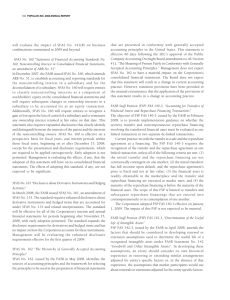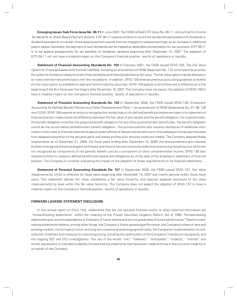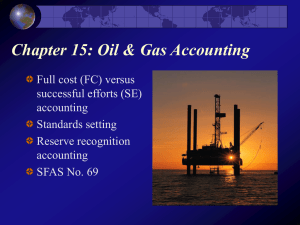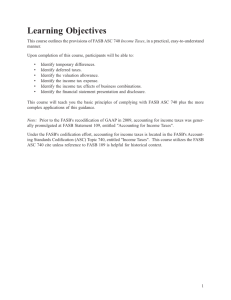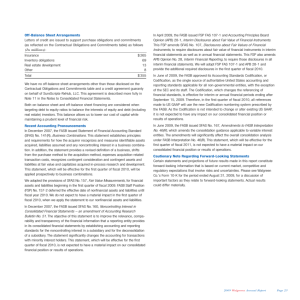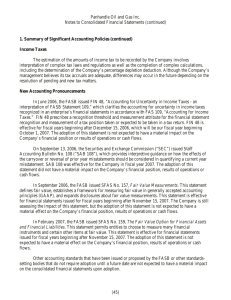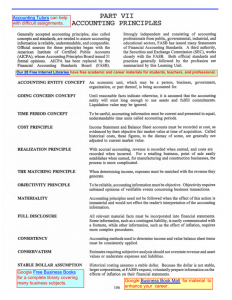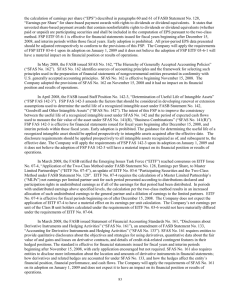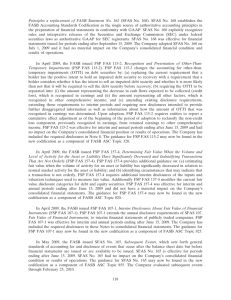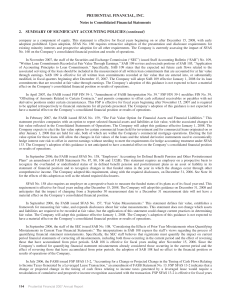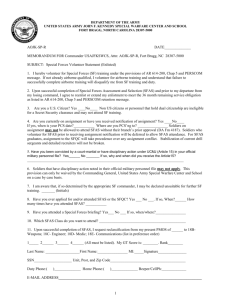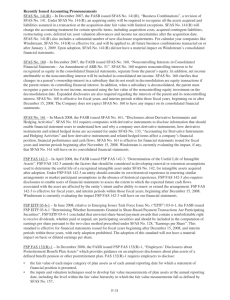Are Not Orderly” and FSP No. FAS 115-2 and FAS 124
advertisement
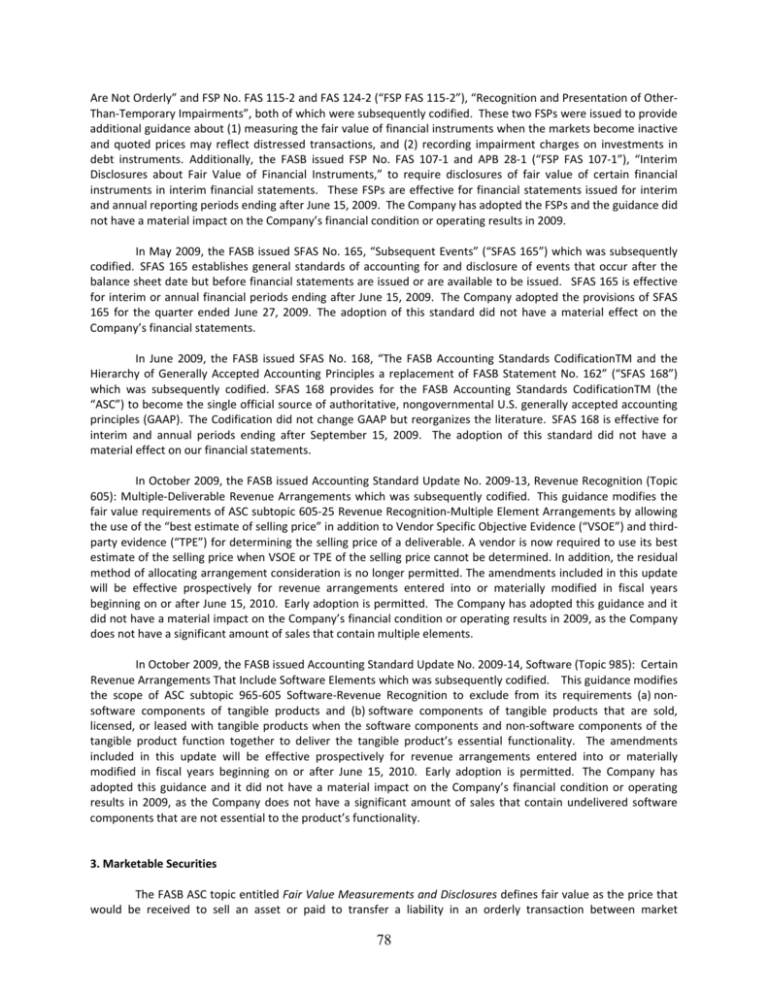
Are Not Orderly” and FSP No. FAS 115‐2 and FAS 124‐2 (“FSP FAS 115‐2”), “Recognition and Presentation of Other‐ Than‐Temporary Impairments”, both of which were subsequently codified. These two FSPs were issued to provide additional guidance about (1) measuring the fair value of financial instruments when the markets become inactive and quoted prices may reflect distressed transactions, and (2) recording impairment charges on investments in debt instruments. Additionally, the FASB issued FSP No. FAS 107‐1 and APB 28‐1 (“FSP FAS 107‐1”), “Interim Disclosures about Fair Value of Financial Instruments,” to require disclosures of fair value of certain financial instruments in interim financial statements. These FSPs are effective for financial statements issued for interim and annual reporting periods ending after June 15, 2009. The Company has adopted the FSPs and the guidance did not have a material impact on the Company’s financial condition or operating results in 2009. In May 2009, the FASB issued SFAS No. 165, “Subsequent Events” (“SFAS 165”) which was subsequently codified. SFAS 165 establishes general standards of accounting for and disclosure of events that occur after the balance sheet date but before financial statements are issued or are available to be issued. SFAS 165 is effective for interim or annual financial periods ending after June 15, 2009. The Company adopted the provisions of SFAS 165 for the quarter ended June 27, 2009. The adoption of this standard did not have a material effect on the Company’s financial statements. In June 2009, the FASB issued SFAS No. 168, “The FASB Accounting Standards CodificationTM and the Hierarchy of Generally Accepted Accounting Principles a replacement of FASB Statement No. 162” (“SFAS 168”) which was subsequently codified. SFAS 168 provides for the FASB Accounting Standards CodificationTM (the “ASC”) to become the single official source of authoritative, nongovernmental U.S. generally accepted accounting principles (GAAP). The Codification did not change GAAP but reorganizes the literature. SFAS 168 is effective for interim and annual periods ending after September 15, 2009. The adoption of this standard did not have a material effect on our financial statements. In October 2009, the FASB issued Accounting Standard Update No. 2009‐13, Revenue Recognition (Topic 605): Multiple‐Deliverable Revenue Arrangements which was subsequently codified. This guidance modifies the fair value requirements of ASC subtopic 605‐25 Revenue Recognition‐Multiple Element Arrangements by allowing the use of the “best estimate of selling price” in addition to Vendor Specific Objective Evidence (“VSOE”) and third‐ party evidence (“TPE”) for determining the selling price of a deliverable. A vendor is now required to use its best estimate of the selling price when VSOE or TPE of the selling price cannot be determined. In addition, the residual method of allocating arrangement consideration is no longer permitted. The amendments included in this update will be effective prospectively for revenue arrangements entered into or materially modified in fiscal years beginning on or after June 15, 2010. Early adoption is permitted. The Company has adopted this guidance and it did not have a material impact on the Company’s financial condition or operating results in 2009, as the Company does not have a significant amount of sales that contain multiple elements. In October 2009, the FASB issued Accounting Standard Update No. 2009‐14, Software (Topic 985): Certain Revenue Arrangements That Include Software Elements which was subsequently codified. This guidance modifies the scope of ASC subtopic 965‐605 Software‐Revenue Recognition to exclude from its requirements (a) non‐ software components of tangible products and (b) software components of tangible products that are sold, licensed, or leased with tangible products when the software components and non‐software components of the tangible product function together to deliver the tangible product’s essential functionality. The amendments included in this update will be effective prospectively for revenue arrangements entered into or materially modified in fiscal years beginning on or after June 15, 2010. Early adoption is permitted. The Company has adopted this guidance and it did not have a material impact on the Company’s financial condition or operating results in 2009, as the Company does not have a significant amount of sales that contain undelivered software components that are not essential to the product’s functionality. 3. Marketable Securities The FASB ASC topic entitled Fair Value Measurements and Disclosures defines fair value as the price that would be received to sell an asset or paid to transfer a liability in an orderly transaction between market 78
